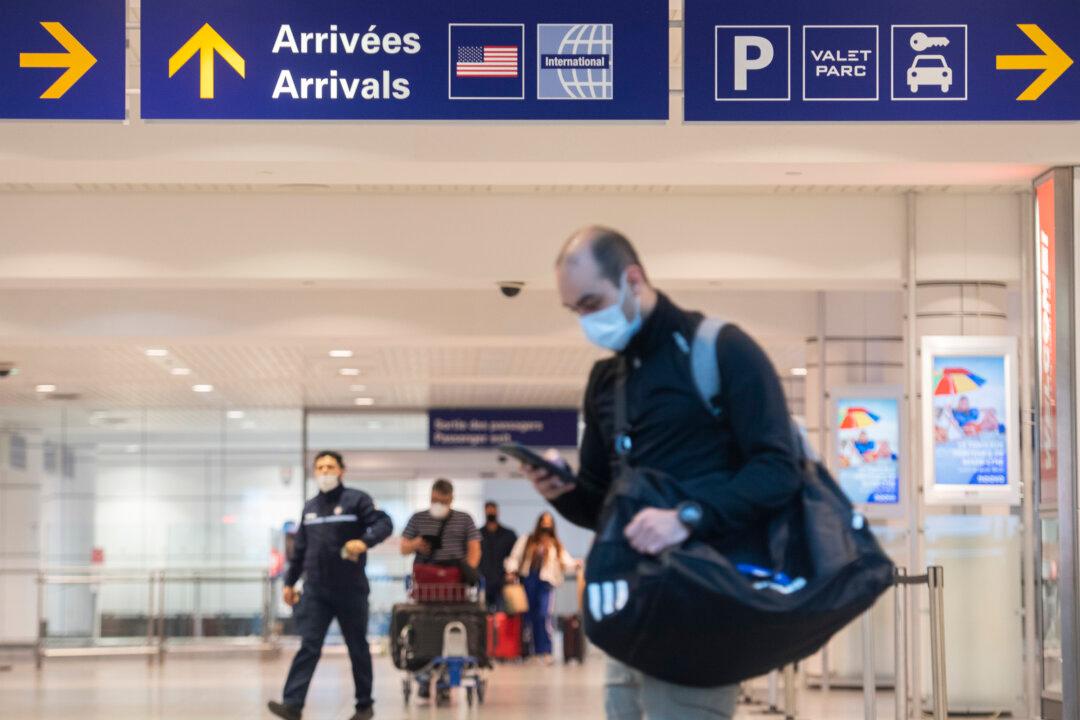A group representing the Canadian airport industry is calling on the Liberal government to align with the international community in ending the COVID-19 vaccine mandate for aviation employees and air travellers.
“The aviation community has been a supportive partner of the federal government in facilitating the vaccine mandate for travel since October 2021. However, today all Canadian provinces have removed vaccine restrictions, so there is now a different standard for aviation employees and transportation than for other Canadians,” the Canadian Airports Council (CAC) said in a June 6 statement on Twitter.





